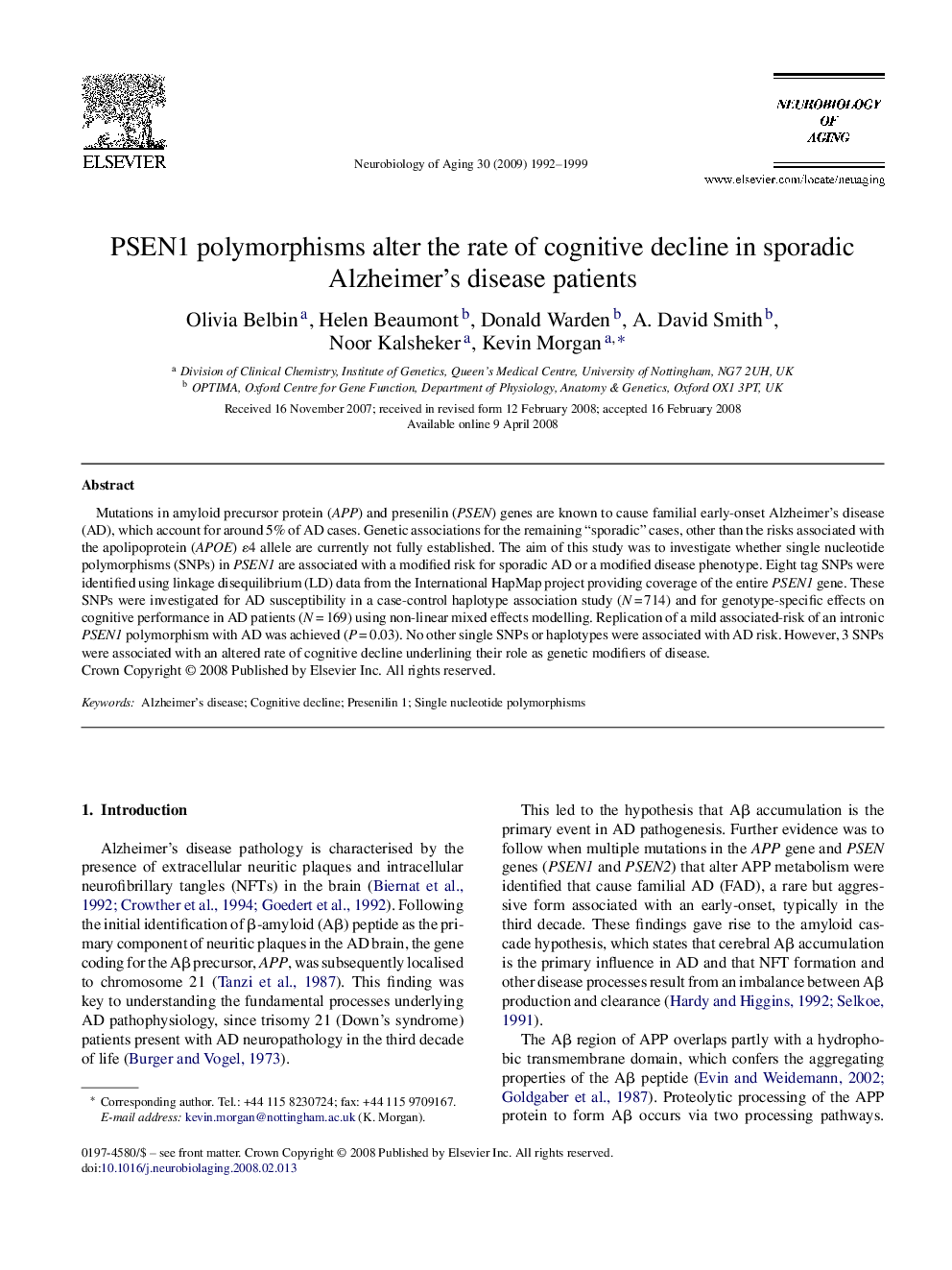| Article ID | Journal | Published Year | Pages | File Type |
|---|---|---|---|---|
| 328703 | Neurobiology of Aging | 1999 | 8 Pages |
Mutations in amyloid precursor protein (APP) and presenilin (PSEN) genes are known to cause familial early-onset Alzheimer's disease (AD), which account for around 5% of AD cases. Genetic associations for the remaining “sporadic” cases, other than the risks associated with the apolipoprotein (APOE) ɛ4 allele are currently not fully established. The aim of this study was to investigate whether single nucleotide polymorphisms (SNPs) in PSEN1 are associated with a modified risk for sporadic AD or a modified disease phenotype. Eight tag SNPs were identified using linkage disequilibrium (LD) data from the International HapMap project providing coverage of the entire PSEN1 gene. These SNPs were investigated for AD susceptibility in a case-control haplotype association study (N = 714) and for genotype-specific effects on cognitive performance in AD patients (N = 169) using non-linear mixed effects modelling. Replication of a mild associated-risk of an intronic PSEN1 polymorphism with AD was achieved (P = 0.03). No other single SNPs or haplotypes were associated with AD risk. However, 3 SNPs were associated with an altered rate of cognitive decline underlining their role as genetic modifiers of disease.
